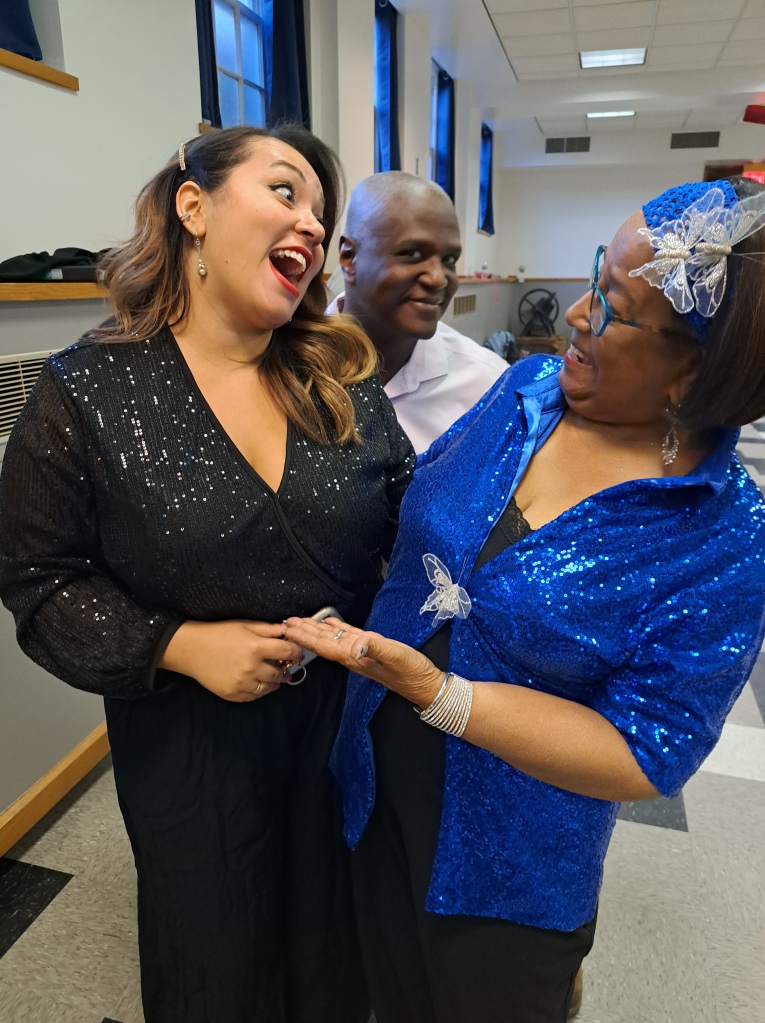Get Inside “The Soul of Broadway!”
Bethesda Little Theatre presents an original musical revue featuring songs that represent the soul of Broadway. Explore the emotion, heart, and rhythm of Broadway through songs from The Wiz, Smokey Joe’s Cafe, RENT, and more! Don’t miss your chance to laugh, cry, and dance to songs by Michael Jackson, the Temptations, and Tina Turner. The Soul of Broadway, runs June 9, 10, and 11 at the Montgomery College Cultural Arts Center. (For tickets and more information click here: blt-online.org or call 202-796-3431.)
In our blog series “Inside the Numbers” we take you backstage with the performers to discuss a sampling of the songs they’ll be presenting; today we’re going to explore an original mashup, arranged by Leslie Blaha, of two songs: “One Song Glory,” from RENT, and “Glory,” from the soundtrack to Selma.
One Song Glory/Glory
This is a mashup of two songs from RENT and Selma. Were you familiar with either song?
Amanda: I was only familiar with “One Song Glory” from Rent. It’s funny — I used to skip that track when I listened to the Rent soundtrack. As I grew older I started to appreciate it a lot more, how it builds from introspective and bitter to raging fury. Now it makes me think about mortality and mistakes. It’s a very valuable song.
Leslie: I was more familiar with “Glory,” from Selma. I wanted to include that song even though it wasn’t from a Broadway musical, because it fit really well into the social justice segment of the show. I came up with the idea of arranging the mashup when a member of the production team recommended “One Song Glory” as one of the songs.
What is your “One Song Glory” dream? A bucket list wish?
Amanda: I’d like to direct and act in a Japanese play. Unfortunately, it’s really hard to find people who enjoy both acting and the Japanese language.
Kathleen: It may sound cliché, but I’m already living my “One Song Glory” dream. As the daughter of immigrants, I have done so many things that my ancestors could not have imagined. I continue to reach further and farther.
“Glory” hearkens to the gospel roots of soul music. Do you have a connection to gospel music?
Kathleen: As a kid, I was exposed to different forms of music which also included gospel. I particularly would love the harmonies and melting of voices that the choir would produce.
Leslie: I was always really impressed with the range of gospel singers and the way a gospel choir works to support the soloists.
The spoken word segments of “Glory” convey the civil rights message of the 1960s and the fight that still continues. Which part is the most significant to you?
Leslie: My favorite line is “When it go down we woman and man up/They say, “Stay down,” and we stand up. With the culture wars taking place these days, it’s important to remember that change comes when we fight for it. We can’t give up on defending the rights of every person, no matter which part of their identity is being attacked.
Kathleen: The more I learned and memorized the spoken word segments, the more affected I felt by its message. Being a person of color in the United States is no small feat, and the spoken words really highlight the continued struggle that many people in the BIPOC community continue to face.




